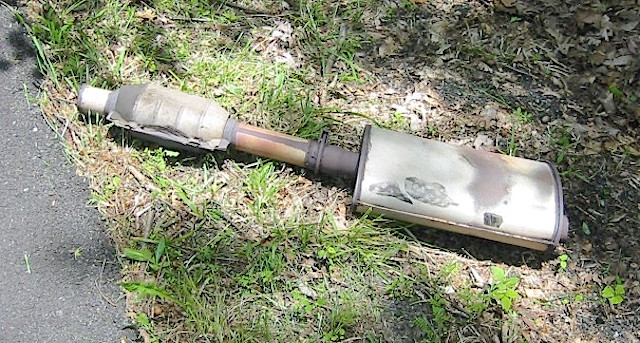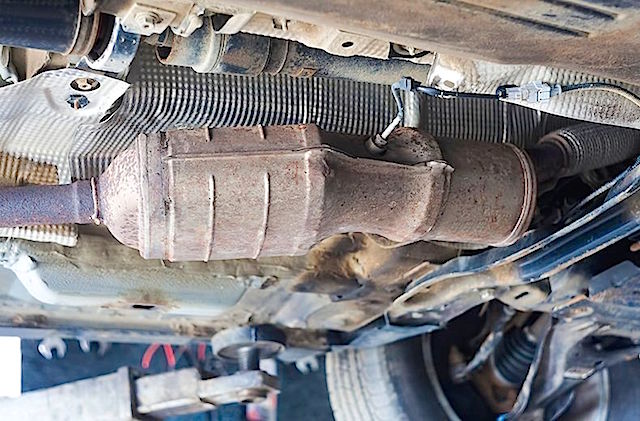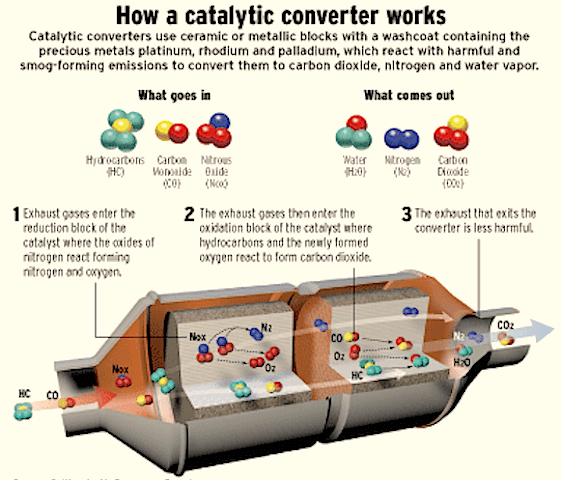
It’s a practice that has been going on in New Zealand for decades – sawing off the catalytic converters in the exhaust system of cars to boost the power of the engine, if only marginally.
But now the process has brought in the cops, including America’s FBI and global agency Interpol. Why? Because international criminals are cashing in on precious metals in catalytic converters.
The catalytic converters themselves contain a honeycomb structure that filters out harmful vehicle exhaust gases. Gangs of thieves sell them through networks of scrap metal dealers.
The thieves have been lured by the spectacular rise in the value of one of the metals, rhodium. It is unparalleled in its ability to remove the most toxic pollutants from the gases.
Three years ago, a troy ounce (31.1grams) of rhodium was worth around US$1700 – now it’s worth US$27,500, 16 times the price of gold.
US insurance and law enforcement agencies are logging thousands of thefts of catalytic converters. One repair shop in Minneapolis has so far this year had to fix 70 cars where the device has been removed.
In London, there were more than 3000 thefts of catalytic converters in the first six months of 2019. That was up from 170 in all of 2017. Coronavirus lockdowns in the UK stalled thefts last year but they nevertheless continued. Australia, too, is reporting such thefts.
Crooks use battery-powered saws or grinders to saw through the exhaust pipes. In one case in London, CCTV recorded two men making off in minutes with most of the exhaust system from a parked car. They’d quickly jacked up the car.
Hybrids are most attractive, as reduced pollutants mean the metal is in better condition. SUVs are also targeted because their often higher ground clearance allows crooks easier access. A UK report said one gang in 2019 was stealing six catalytic converters a day and selling them each for NZ$400.
Silvery-white rhodium is a by-product of the production of platinum and palladium. About 80 per cent of the world’s rhodium comes from South Africa. Each unit of ore mined typically contains 60 per cent platinum, 30 per cent palladium, and 8 to 9 per cent rhodium, according to South African producers.
South Africa has been mining and exporting as much platinum as it could for years. It is one of the country’s main exports and is used in a variety of products, from jewellry to heavy industry.
But the constant mining led to a surplus of platinum that persists to this day. Platinum is produced only when mining companies see a profit in it. As a result, production of platinum’s vital by-product has pretty much stopped, leaving a worldwide rhodium shortage of upwards of 150,000 troy ounces.
Mining companies say even meteoric rhodium prices can’t justify scaling up platinum production. “No one is going to set up a mine just for the rhodium,” said one US analyst.
- The removal of catalytic converters from cars allows exhaust gases to exit engines much faster and at higher levels. The result, in a nutshell, is a little more power, a louder exhaust note – and more harmful CO2 emissions.
- New Zealand, unlike many developed countries, doesn’t have emissions tests as part of its Warrant of Fitness regime. Our politicians continue to do bugger-all about monitoring transport emissions.


